News
[Interview] Screenwriter Mark Bomback – War for the Planet of the Apes
Mankind moves closer to its demise in War for the Planet of the Apes, the third film in the Planet of the Apes reboot series. The architects of mankind’s destruction, and the continued rise of the apes toward global dominance, are director Matt Reeves and screenwriter Mark Bomback, whose collaboration began with 2014’s Dawn of the Planet of the Apes. For Bomback and Reeves, the challenge, and the excitement, of connecting the prequel series to the original 1968 film, isn’t based on the knowledge of what’s going to happen but rather the how and why.

In June, I had the chance to talk to Bomback about how he and Reeves constructed the screenplay for War for the Planet of the Apes and how this third prequel film fits into the overall Apes mythology.
DG: Mark, what were the key decisions that you and Matt made prior to the writing of this screenplay, in terms of the direction you wanted to take with this third film?
MB: Actually, before sitting down to write, Matt and I both agreed that nothing was off the table in terms of where the story could go. We knew, of course, that whatever the narrative was, it was going to center on Caesar and ideally set him on a path that takes him to places we’d yet to explore, but it would also continue his larger trajectory from accidental revolutionary to the leader of an entirely new civilization. We often say that these stories aren’t so much about where they’re ultimately going – we all know it’s called Planet of the Apes, not Planet of the Humans – but how they arrive there.
DG: How has the conflict between the apes and humans evolved between the end of the last film and the beginning of this film, and how have Caesar and the rest of the apes evolved?
MB: Well this new film is set two years after Dawn, and we quickly come to understand that in the interim the apes have been engaged in a near constant state of warfare. They’ve had to retreat to the woods and establish a new, clandestine home for themselves. The humans they’ve been fighting are relatively new arrivals to the world of our film, having been contacted at the end of the last film by Gary Oldman’s character. They’re much less ragtag than the human adversaries in Dawn – these are all military-trained men and women who have developed a kind of “kill or be killed” attitude toward the apes, who they insist on seeing as savage animals despite all evidence to the contrary. Under the leadership of The Colonel, to whom these soldiers have an almost cultish devotion, they believe themselves to be on a noble mission to save the human species. That kind of fervor can allow people to commit all sorts of atrocities in the name of doing what they believe is for the greater good.
In terms of the apes’ evolution, they’ve had to adapt to life during wartime, as I mentioned earlier. But they’ve also managed to evolve further as a species. You’ll find that Caesar has become even more articulate, and speech is peppered a little more into the ape community’s sign language. They’ve also continued to learn what it means to be parents and spouses and comrades-in-arms; I think you sense a lot more depth to all of their interactions.

DG: Mark, when I visited the set in December 2015, the footage of Caesar revealed to me that Caesar had lost his humanity. Question: How would you describe the state of Caesar’s relationship with humanity in this film, both his own humanity and the actual human race?
MB: Caesar’s internal struggle with his feelings toward humanity is one of the reasons we felt War was such an appropriate title for this film – Caesar is very much at war with himself. Remember, Caesar is the only ape who has a genuine love for humans, because of his history with characters like Will and Malcolm and Ellie in the previous films. When War begins, however, Caesar is already on the cusp of losing faith in humankind’s continued capacity for decency. The soldiers are just relentless. And soon events transpire that finally push Caesar to a place where he breaks with humanity once and for all. For the first time, he comes to understand what true hatred feels like, and it’s a terrifying journey for us to witness.
DG: Mark, while Dawn of the Planet of the Apes was a very contained, gritty film, War for the Planet of the Apes has been described as being an epic western film. Question: How would you describe the scale and tone of this film, and what were the notes and the themes that you wanted to inject into this story?
MB: The scale is certainly grander than in the previous films – far more epic than any film I’ve ever worked on, really. If Caesar is destined to become his people’s Moses, then we knew we should try to push the storytelling, the settings, and the ideas to a more mythic place. The trick was to make it feel connected to the last film tonally, but also move into a more sweeping, almost biblical direction. As for the theme, as I said earlier, the central theme in this film is the war within us all, the inevitable struggle between the drive for survival and the maintenance of one’s moral compass.
DG: Mark, how would you describe Woody Harrelson’s character, the Colonel, his mission, his point-of-view, and what kind of obstacle does he represent for Caesar in the film?
MB: Without giving too much away, I’ll say that the Colonel is in many ways the perfect foil for Caesar. He is someone who has grappled with the costs of war as well, and who has ultimately chosen to abandon his morality in order to prevent what he believes will be the extinction of his own species. He has evolved (or devolved) to a place where no action is deemed inexcusable if it means the survival of humankind. And Caesar comes to question if that sort of grim resolve is actually necessary to survive. Bottom line, there’s a bit of a “there but for grace of God goes Caesar” to the Colonel’s character.
DG: Mark, what does this third film represent within the prequel series, and what sets this film apart from the previous two films, and all of the other Apes films?
MB: That’s really a bit difficult to answer without treading into spoiler territory. I’ll simply say that this film marks a very significant step toward the world of the original 1968 Planet of the Apes film. What sets it apart, in my opinion, is the ambition of the storytelling, the even more incredible nuances of the performances – and of course the brilliance of the mo-cap work. The folks at Weta have truly outdone themselves this time around. It’s pretty astounding.
DG: What was the biggest challenge you faced in making this film, telling this story?
MB: The biggest challenge was ensuring that this film mark a significant step forward in every way. At the risk of sounding immodest, I really loved Dawn, as did Matt. We were keenly aware of certain things we wished we could have improved, but on the whole it succeeded in a way that makes me very proud. When we set down to figure out the narrative for War, Matt and I both agreed that if we weren’t totally confident that this was a better story than either of the two films that preceded it, then it wasn’t worth telling. The road to mediocrity is paved with three-quels that thought they could simply coast, and we were anxious to avoid that. We were determined to be as ambitious as possible, to entertain every crazy idea we had and really go for broke. I hope we’ve succeeded.
DG: Mark, as Alien: Covenant represented a major leap toward Alien, in terms of the Alien prequel series, what is the proximity between this film and the 1968 film, which is, theoretically, the ultimate destination?
MB: I’m afraid to answer that would be to spoil the film. Sorry!
DG: Mark, it’s been said that ending to this film would function as a satisfactory ending to the series, if the decision was made not to make more films. Question: Do you agree with this, and have you and Matt established a rough framework for more films, and if you were told that the next film, the fourth film in the prequel series, were, in fact, the last film, how excited, and prepared, would you be for the challenge of ending this series?
DG: Gosh, I don’t mean to sound coy, but I’m afraid I’m not totally comfortable answering that either or even speculating on exactly what the next film or films could or couldn’t accomplish. What I will say is that it’s an incredibly rich and inspiring world, and I’ve been really privileged to explore it over the course of these films thus far.
'Civil War' Review: Is It Worth Watching?
Follow our new YouTube channel "Mysteries and Movies" here.

Movies
Trailer for ‘The Exorcism’ Has Russell Crowe Possessed
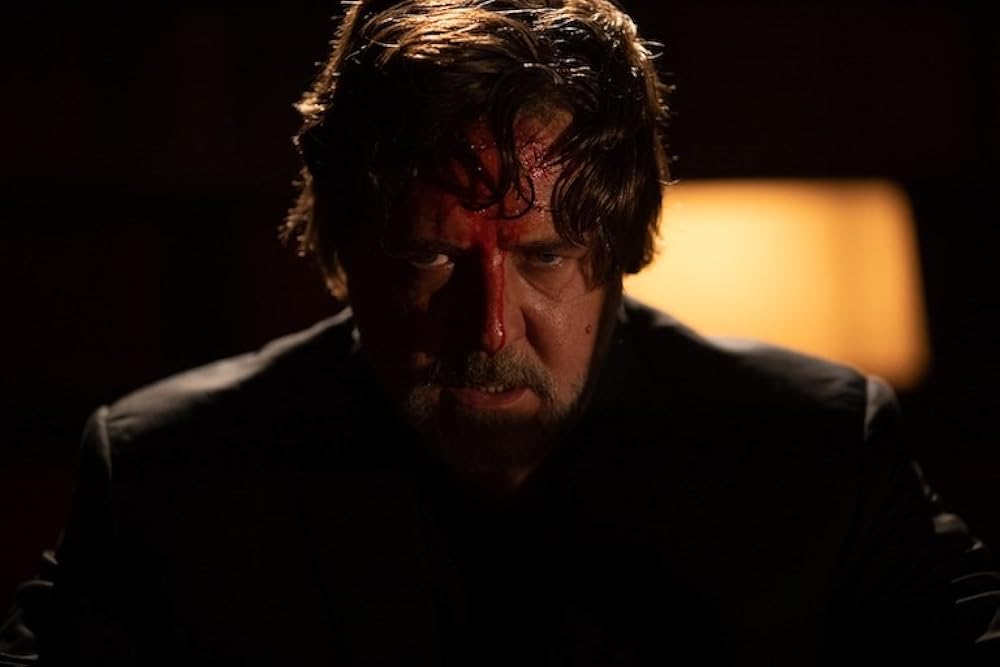
The latest exorcism movie is about to drop this summer. It’s aptly titled The Exorcism and it stars Academy Award winner turned B-movie savant Russell Crowe. The trailer dropped today and by the looks of it, we are getting a possession movie that takes place on a movie set.
Just like this year’s recent demon-in-media-space film Late Night With the Devil, The Exorcism happens during a production. Although the former takes place on a live network talk show, the latter is on an active sound stage. Hopefully, it won’t be entirely serious and we’ll get some meta chuckles out of it.
The film will open in theaters on June 7, but since Shudder also acquired it, it probably won’t be long after that until it finds a home on the streaming service.
Crowe plays, “Anthony Miller, a troubled actor who begins to unravel while shooting a supernatural horror film. His estranged daughter, Lee (Ryan Simpkins), wonders if he’s slipping back into his past addictions or if there’s something more sinister at play. The film also stars Sam Worthington, Chloe Bailey, Adam Goldberg and David Hyde Pierce.”
Crowe did see some success in last year’s The Pope’s Exorcist mostly because his character was so over-the-top and infused with such comical hubris it bordered on parody. We will see if that is the route actor-turned-director Joshua John Miller takes with The Exorcism.
'Civil War' Review: Is It Worth Watching?
Follow our new YouTube channel "Mysteries and Movies" here.
News
Win a Stay at The Lizzie Borden House From Spirit Halloween
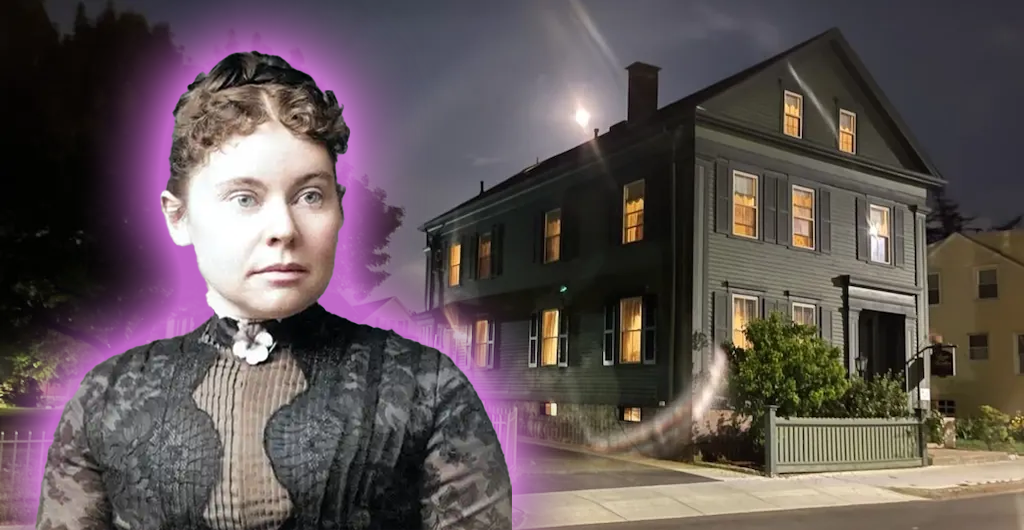
Spirit Halloween has declared that this week marks the start of spooky season and to celebrate they are offering fans a chance to stay at the Lizzie Borden House with so many perks Lizzie herself would approve.
The Lizzie Borden House in Fall River, MA is claimed to be one of the most haunted houses in America. Of course one lucky winner and up to 12 of their friends will find out if the rumors are true if they win the grand prize: A private stay in the notorious house.
“We are delighted to work with Spirit Halloween to roll out the red carpet and offer the public a chance to win a one-of-a-kind experience at the infamous Lizzie Borden House, which also includes additional haunted experiences and merchandise,” said Lance Zaal, President & Founder of US Ghost Adventures.
Fans can enter to win by following Spirit Halloween‘s Instagram and leaving a comment on the contest post from now through April 28.
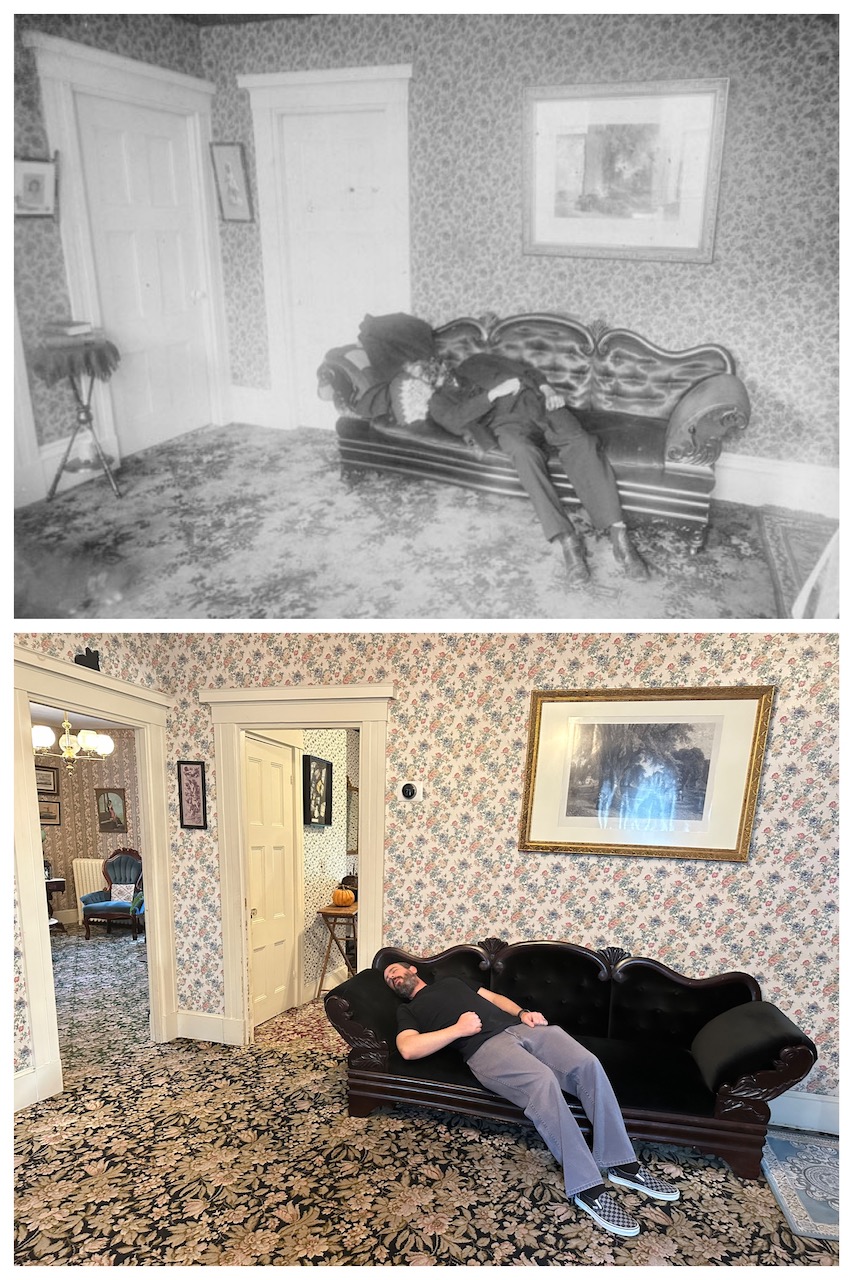
The prize also includes:
An exclusive guided house tour, including insider insight around the murder, the trial, and commonly reported hauntings
A late-night ghost tour, complete with professional ghost-hunting gear
A private breakfast in the Borden family dining room
A ghost hunting starter kit with two pieces of Ghost Daddy Ghost Hunting Gear and a lesson for two at US Ghost Adventures Ghost Hunting Course
The ultimate Lizzie Borden gift package, featuring an official hatchet, the Lizzie Borden board game, Lily the Haunted Doll, and America’s Most Haunted Volume II
Winner’s choice of a Ghost Tour experience in Salem or a True Crime experience in Boston for two
“Our Halfway to Halloween celebration provides fans an exhilarating taste of what’s to come this fall and empowers them to start planning for their favorite season as early as they please,” said Steven Silverstein, CEO of Spirit Halloween. “We have cultivated an incredible following of enthusiasts who embody the Halloween lifestyle, and we’re thrilled to bring the fun back to life.”
Spirit Halloween is also preparing for their retail haunted houses. On Thursday, August 1 their flagship store in Egg Harbor Township, NJ. will officially open to start off the season. That event usually draws in hordes of people eager to see what new merch, animatronics, and exclusive IP goods will be trending this year.
'Civil War' Review: Is It Worth Watching?
Follow our new YouTube channel "Mysteries and Movies" here.
Movies
’28 Years Later’ Trilogy Taking Shape With Serious Star Power
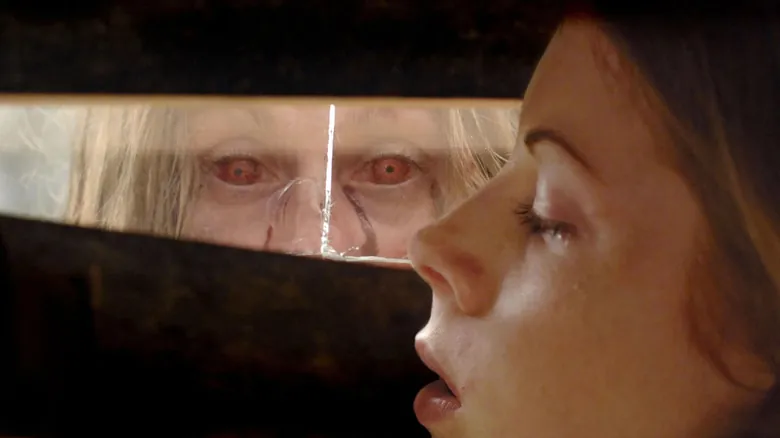
Danny Boyle is revisiting his 28 Days Later universe with three new films. He will direct the first, 28 Years Later, with two more to follow. Deadline is reporting that sources say Jodie Comer, Aaron Taylor-Johnson, and Ralph Fiennes have been cast for the first entry, a sequel to the original. Details are being kept under wraps so we don’t know how or if the first original sequel 28 Weeks Later fits into the project.


Boyle will direct the first movie but it’s unclear which role he will take on in the subsequent films. What is known is Candyman (2021) director Nia DaCosta is scheduled to direct the second film in this trilogy and that the third will be filmed immediately afterward. Whether DaCosta will direct both is still unclear.
Alex Garland is writing the scripts. Garland is having a successful time at the box office right now. He wrote and directed the current action/thriller Civil War which was just knocked out of the theatrical top spot by Radio Silence’s Abigail.
There is no word yet on when, or where, 28 Years Later will start production.
The original film followed Jim (Cillian Murphy) who wakes from a coma to find that London is currently dealing with a zombie outbreak.
'Civil War' Review: Is It Worth Watching?
Follow our new YouTube channel "Mysteries and Movies" here.
-
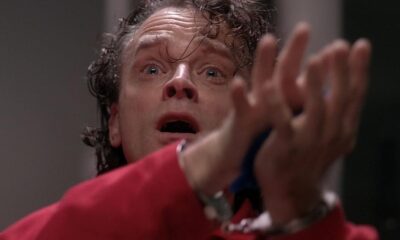
 News6 days ago
News6 days agoBrad Dourif Says He’s Retiring Except For One Important Role
-

 Strange and Unusual7 days ago
Strange and Unusual7 days agoMan Arrested for Allegedly Taking a Severed Leg From Crash Site And Eating It
-
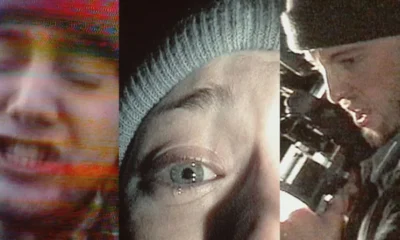
 News5 days ago
News5 days agoOriginal Blair Witch Cast Ask Lionsgate for Retroactive Residuals in Light of New Film
-

 Editorial7 days ago
Editorial7 days ago7 Great ‘Scream’ Fan Films & Shorts Worth a Watch
-
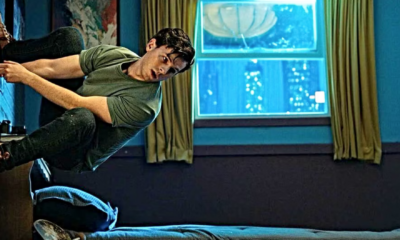
 Movies5 days ago
Movies5 days agoSpider-Man With a Cronenberg Twist in This Fan-Made Short
-
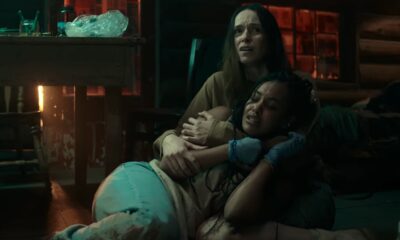
 Movies7 days ago
Movies7 days agoCannabis-Themed Horror Movie ‘Trim Season’ Official Trailer
-
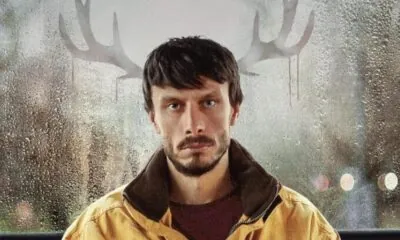
 News2 days ago
News2 days agoPerhaps the Scariest, Most Disturbing Series of The Year
-
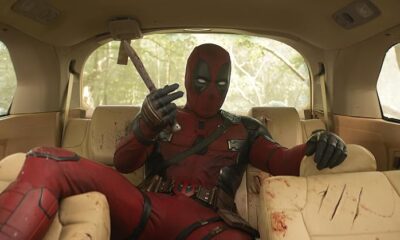
 Movies4 days ago
Movies4 days agoNew F-Bomb Laden ‘Deadpool & Wolverine’ Trailer: Bloody Buddy Movie
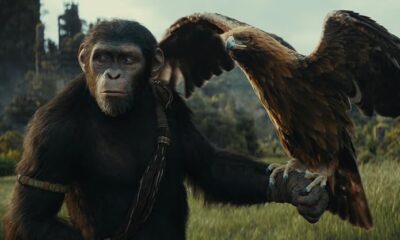


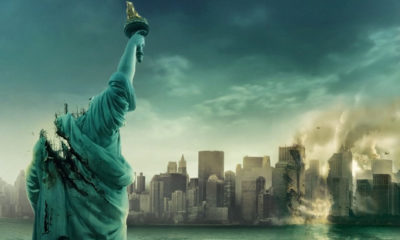























You must be logged in to post a comment Login